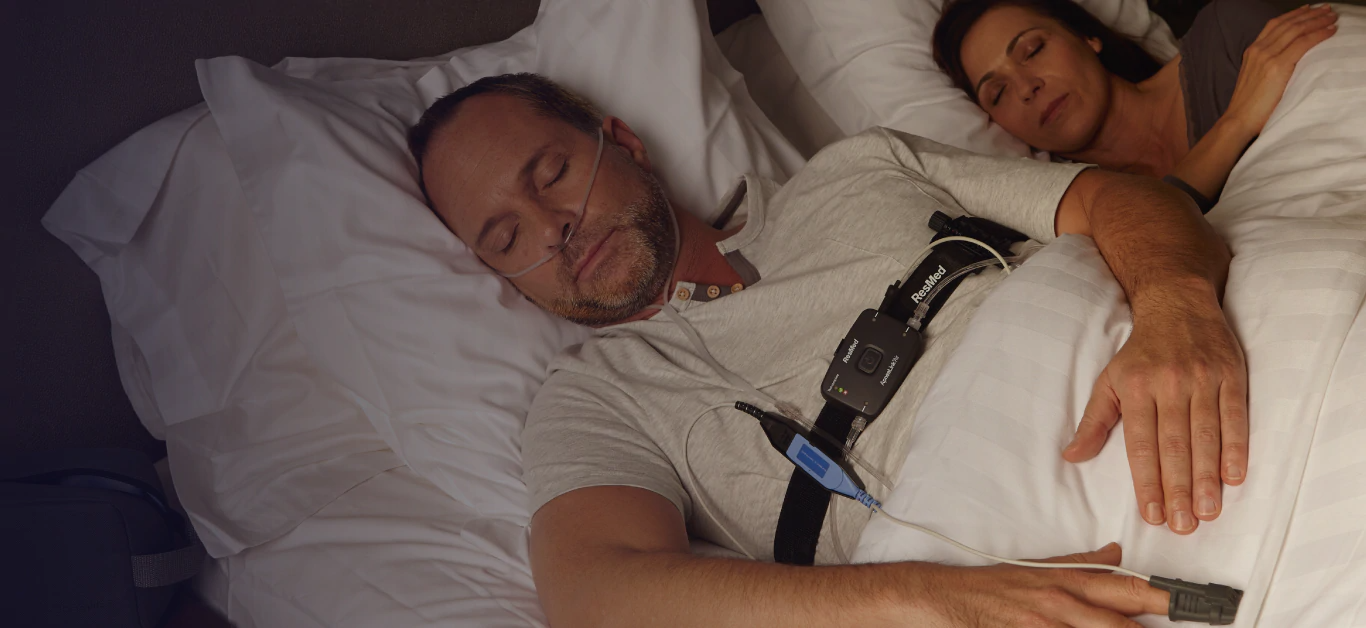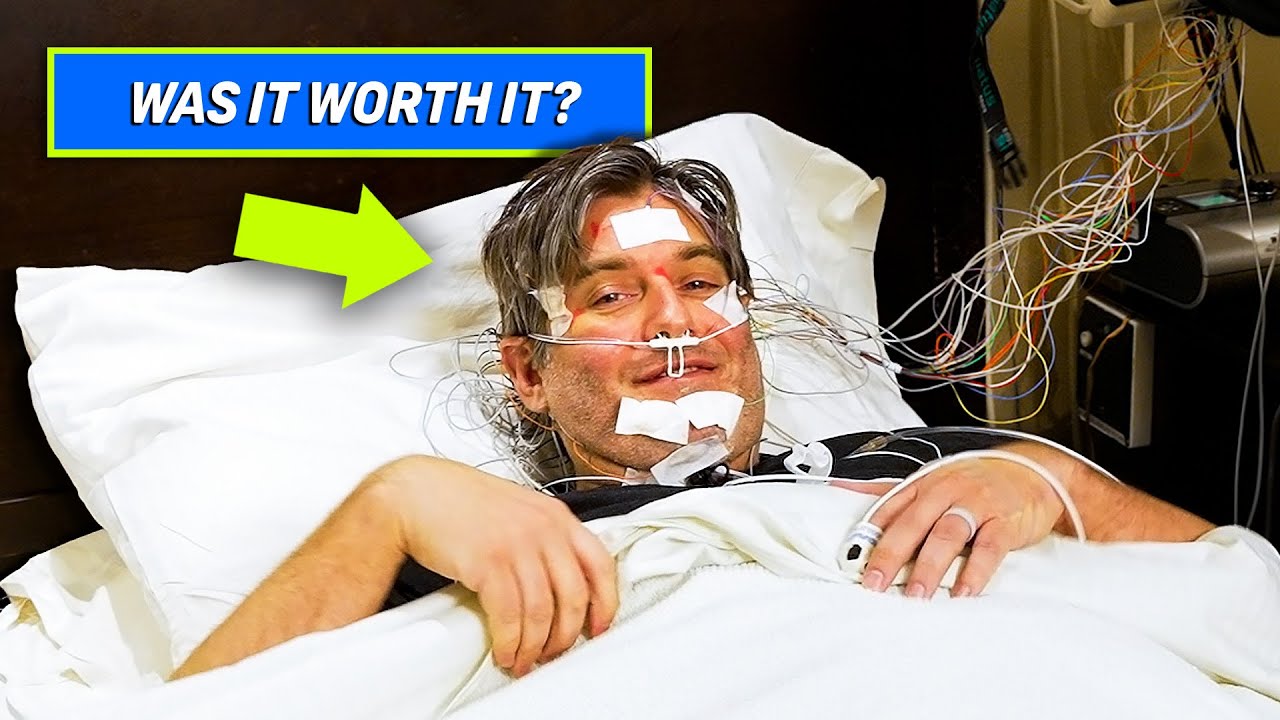Sleep Study Bangalore Brings cutting-edge Solutions for Sleep Monitoring
All You Required to Know Concerning Rest Studies and Their Duty in Diagnosing Rest Disorders
Rest researches, or polysomnography, are essential tools in understanding and diagnosing various sleep problems. By checking physical signals like mind activity and heart price, these examinations give useful understandings into an individual's rest patterns. The results can reveal problems such as sleeping disorders and rest apnea, leading to targeted therapy strategies. Many continue to be uninformed of the different kinds of sleep research studies and their details processes. Exactly what can one anticipate during a sleep research study?
What Are Rest Studies?
Sleep studies, likewise referred to as polysomnography, are diagnostic tests used to observe and evaluate rest patterns and conditions. These examinations generally take place in a controlled setting, such as a sleep clinic, where people are checked over night. Throughout the research, various physiological signals are videotaped, consisting of brain waves, heart rate, oxygen degrees, and muscular tissue task (Sleep Study Bangalore). This comprehensive information collection enables healthcare experts to determine sleep-related issues, such as rest apnea, sleeplessness, and restless leg disorder. The assessment procedure not just examines the quantity of rest but also its high quality, aiding to pinpoint problems. Sleep studies are crucial for establishing ideal treatment strategies, as they supply insights into the underlying root causes of rest disruptions. By recognizing a person's distinct sleep architecture, doctor can recommend lifestyle modifications, medicine, or extra interventions to boost total rest health and wellness and well-being
Types of Rest Studies
While different sorts of rest research studies exist, they are largely categorized based upon the certain conditions being checked out and the methods used. One typical kind is polysomnography (PSG), which tapes brain waves, oxygen degrees, heart rate, and breathing during rest. This thorough assessment is specifically helpful for diagnosing sleep apnea, sleep problems, and other rest problems.
An additional kind is home rest apnea screening (HSAT), which provides a simplified version of PSG for patients believed of having sleep apnea. This approach enables checking in a familiar atmosphere, boosting comfort and ease.
Actigraphy is an additional approach, making use of a wrist-worn gadget to track activity patterns, therefore offering understandings into sleep-wake cycles. Several rest latency tests (MSLT) assess daytime sleepiness and help diagnose narcolepsy by gauging exactly how rapidly a specific falls asleep throughout the day. Each sort of sleep study serves a distinct purpose in recognizing sleep health and wellness.

Exactly How Sleep Studies Are Conducted
Sleep research studies are conducted with numerous methods, each designed to examine specific elements of sleep actions and physiology. During these researches, keeping track of tools tracks mind activity, heart rate, and breathing patterns to collect extensive information. This information is vital for detecting sleep conditions and identifying reliable treatment choices.
Sorts Of Rest Researches

Keeping track of During Sleep

Common Rest Disorders Identified
Generally come across in scientific setups, sleep conditions encompass a variety of problems that substantially impact an individual's lifestyle. Among the most common are insomnia, identified by difficulty dropping or staying asleep; sleep apnea, which entails repeated interruptions in breathing throughout sleep; and uneasy legs disorder, noted by an alluring impulse to move the legs. Narcolepsy is another significant problem, resulting in extreme daytime sleepiness and sudden sleep assaults - Sleep Study Bangalore. In addition, parasomnias, such as sleepwalking or evening fears, disrupt sleep with uncommon actions. These conditions can have profound effects, including impaired cognitive function, state of mind disruptions, and raised risk of chronic health concerns. Precise diagnosis of these problems often depends on complete sleep studies, which assist determine details conditions and guide efficient treatment strategies. Comprehending the nature and signs and symptoms of these typical sleep conditions is important for boosting individual results and improving total wellness
Understanding the Outcomes of Sleep Researches
While translating the results of sleep studies might seem challenging, a clear understanding of the information can substantially assist in diagnosing rest conditions. Sleep research studies, or polysomnographies, offer extensive understandings into a person's sleep patterns, consisting of brain activity, eye motion, heart price, and oxygen levels. Each of these aspects can expose important details about sleep quality and disruptions.
Secret metrics consist of the Apnea-Hypopnea Index (AHI), which indicates the intensity of rest apnea, and rest phases, which help examine the quantity of corrective sleep. Patterns of fragmented sleep or extended wakefulness might signify hop over to here various other disorders, such as sleeping disorders or troubled leg syndrome.
In addition, hypnograms visually stand for rest cycles, enabling experts to pinpoint specific concerns. By analyzing these results, health care professionals can develop an extra exact medical diagnosis, causing targeted interventions for improved sleep health and general health. Recognizing these outcomes is important for effective management of sleep-related problems.
Treatment Alternatives Following a Rest Research Study
After translating the outcomes of a sleep research study, individuals and medical care companies can check out different treatment options customized to specific sleep problems. For problems like obstructive rest apnea, constant favorable air passage pressure (CPAP) treatment is typically recommended to maintain air passages open during sleep. In instances of sleep problems, cognitive behavior therapy for sleeping disorders (CBT-I) offers effective strategies to improve sleep patterns. Drugs may also be suggested on a short-term basis yet are usually not a first-line therapy. For agitated legs disorder, way of life adjustments, iron supplements, or dopaminergic medications might be suggested. Those detected with narcolepsy might take advantage of stimulant medications to handle extreme daytime sleepiness. Furthermore, attending to hidden health and wellness issues, such as obesity or stress and anxiety, can significantly boost rest top quality. In general, therapy plans are embellished, considering the person's particular medical diagnosis and personal health conditions to optimize end results.
Tips for Getting Ready For a Rest Research
Getting ready for a sleep research study can significantly boost the precision of the results, as clients that adhere to details guidelines are more probable to have a successful experience. To ensure ideal conditions for the study, individuals should keep their routine rest timetable in the days leading up to the visit. It is suggested to prevent high levels of caffeine and alcohol 24 hours before the research, as these materials can conflict with sleep patterns.
Clients should likewise consult their doctor concerning drugs, as some may need to be changed or kept prior to the research study. In addition, putting on comfy, loose-fitting clothing can aid advertise leisure during the evening. Bringing personal items such as a preferred cushion or blanket might additionally contribute to a much more relaxed setting. Showing up at the facility on time allows for required preparations and minimizes any type of tension linked go to these guys with the research study. Adhering to these tips can result in more accurate and significant outcomes.
Often Asked Questions
Are Sleep Research Studies Covered by Insurance?
Rest research studies are often covered by insurance policy, but protection differs by plan and private conditions. Patients must consult their insurance coverage provider to verify particular benefits and prospective out-of-pocket expenses associated with the sleep research study.
Can I Take Medications Prior To a Rest Research?

People are generally encouraged to prevent taking drugs prior to a rest research study, as specific materials might conflict with the outcomes. Consulting a healthcare provider for particular guidelines tailored to one's circumstance is advised.
How Do I Choose a Sleep Center?
To pick a sleep center, one should think about elements such as accreditation, offered modern technology, team credentials, client reviews, area, and whether the facility supplies extensive solutions customized to particular rest conditions.
What Should I Put on During a Rest Study?
For a rest research study, comfy, loose-fitting sleepwear is suggested. It should permit simple activity and not limit sensors. Stay clear of hefty materials and challenging clothing to guarantee a peaceful rest experience during the assessment.
For how long Does It Take to Get Results?
Outcomes from a sleep research generally take one to two weeks to be refined and examined by specialists. People click site must anticipate to obtain a thorough report outlining searchings for and prospective recommendations soon afterwards.
Sleep research studies, also known as polysomnography, are analysis tests used to examine and observe sleep patterns and disorders. Sleep studies are essential for establishing appropriate therapy plans, as they give insights right into the underlying reasons of rest disturbances. Just how are rest studies carried out to ensure precise monitoring of sleep patterns? While translating the outcomes of rest researches may appear intimidating, a clear understanding of the data can significantly aid in detecting sleep conditions. Key metrics consist of the Apnea-Hypopnea Index (AHI), which suggests the extent of rest apnea, and sleep stages, which assist examine the quantity of restorative sleep.